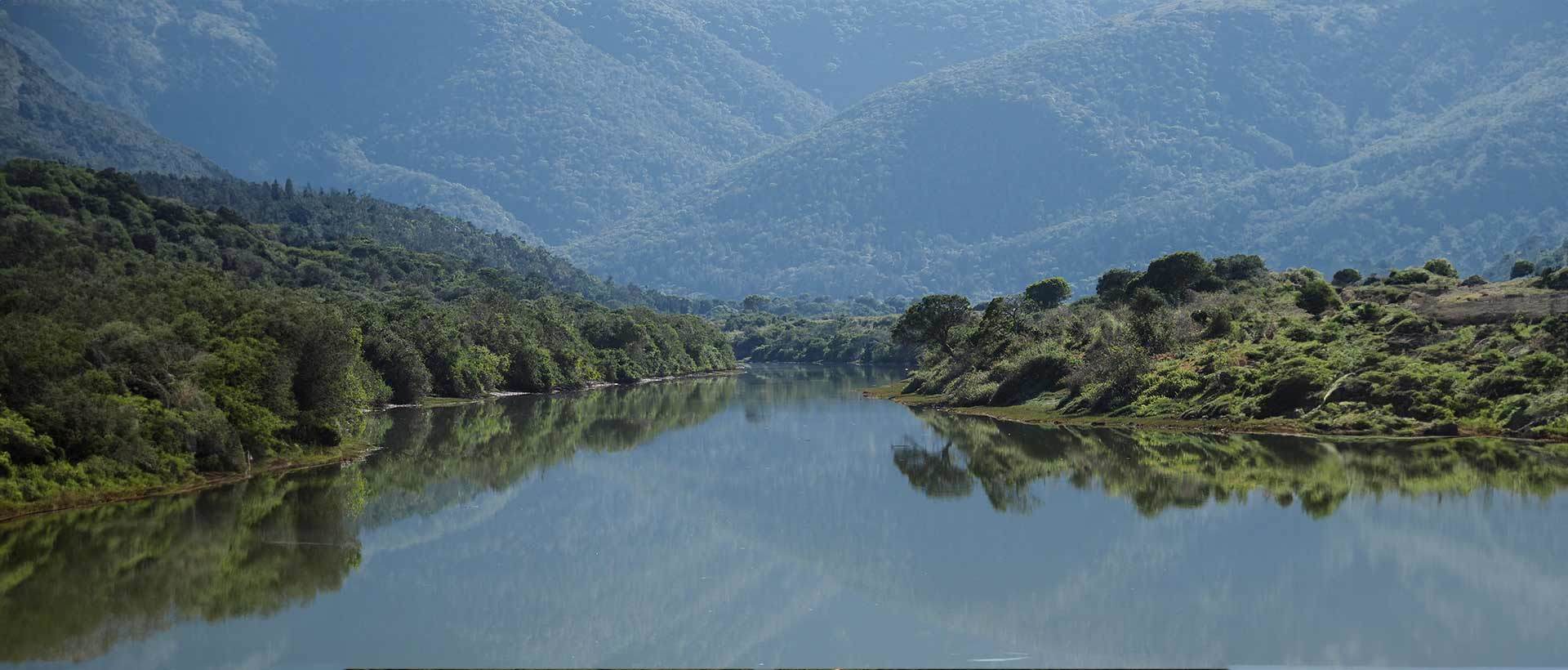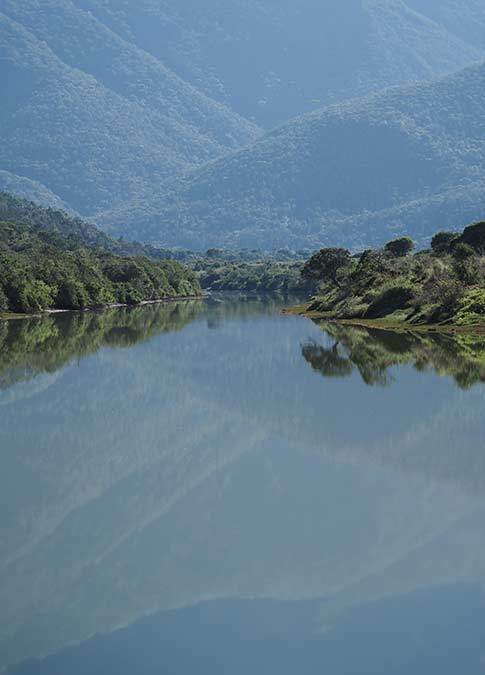The Lion's Roar: Lodge Manager Writes Book on Passion for African Bush
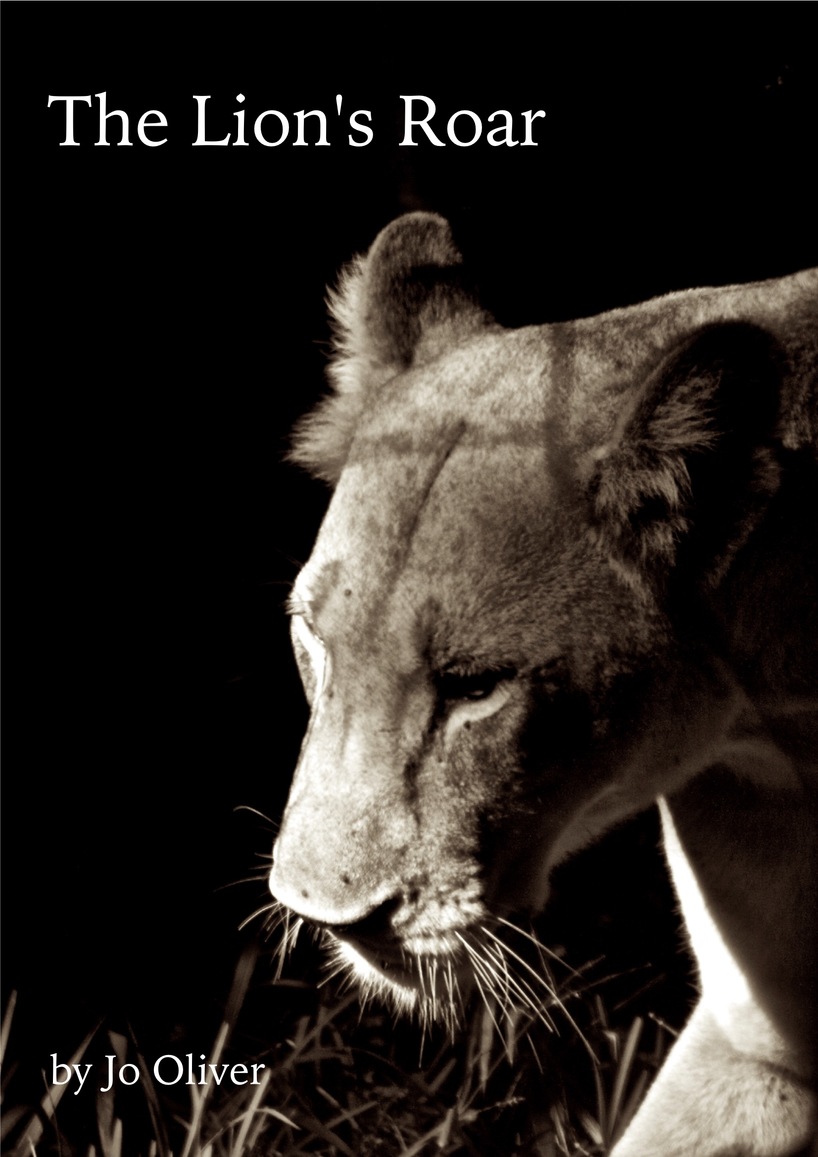
We are very proud to share that our Settlers Drift Lodge Manager, Jo Oliver, has written and published her first book. The Lion's Roar was released in April 2020. Many of our guests will have met Jo and her husband Phil during their 13 years at Kariega Game Reserve in South Africa's Eastern Cape. We've included an excerpt from chapter 25 where Jo writes about some interesting animal behaviours observed in the African bush at Kariega Game Reserve. For those that would like to read Jo's story we have included links to where you can download an electronic version of the book at the end of this article. The book is also available in paperback on Amazon UK. Here is what Jo had to say:
"Over the years at Kariega Game Reserve, both as a guide and now as a lodge manager, many of our guests have suggested that I write a book upon finding out how I ended up here from England.
Well... I've done it!
The Lion's Roar is my story of how I gave up the corporate world in London and Dubai to pursue my passion for the African bush having been introduced to it by a former boyfriend who was a wildlife filmmaker.
When that relationship failed, I took a much needed transfer to Dubai for a fresh start which is where I had a rather serious riding accident and broke my spine. The close call of narrowly avoiding paralysis focused my thoughts that life was too short to be in the wrong place and as my heart was in the African bush and not behind a desk in Dubai, I needed to make a change. Single and in my mid-30s, I resigned from my job and found a research project in Kafue National Park, Zambia who needed volunteers to help them collect their data. I knew from the second day that I wanted to live in the bush and was advised to move to South Africa in order to retrain, which I did a few months later.
Bush Academy in the Limpopo Province was where I trained as a field guide and where I met my husband, Phil, who was on the course with me. We came to Kariega Game Reserve in 2005 after we had qualified and guided here for 6 years out of Ukhozi Lodge before taking up an opportunity of running a safari camp in Botswana's Okavango Delta in 2011.
We returned to Kariega in 2013 to be the management couple of a new tented lodge which was being designed and in the interim, we managed The Homestead whilst Settlers Drift was under construction until its opening in December 2014.
The rest, as they say, is history!"
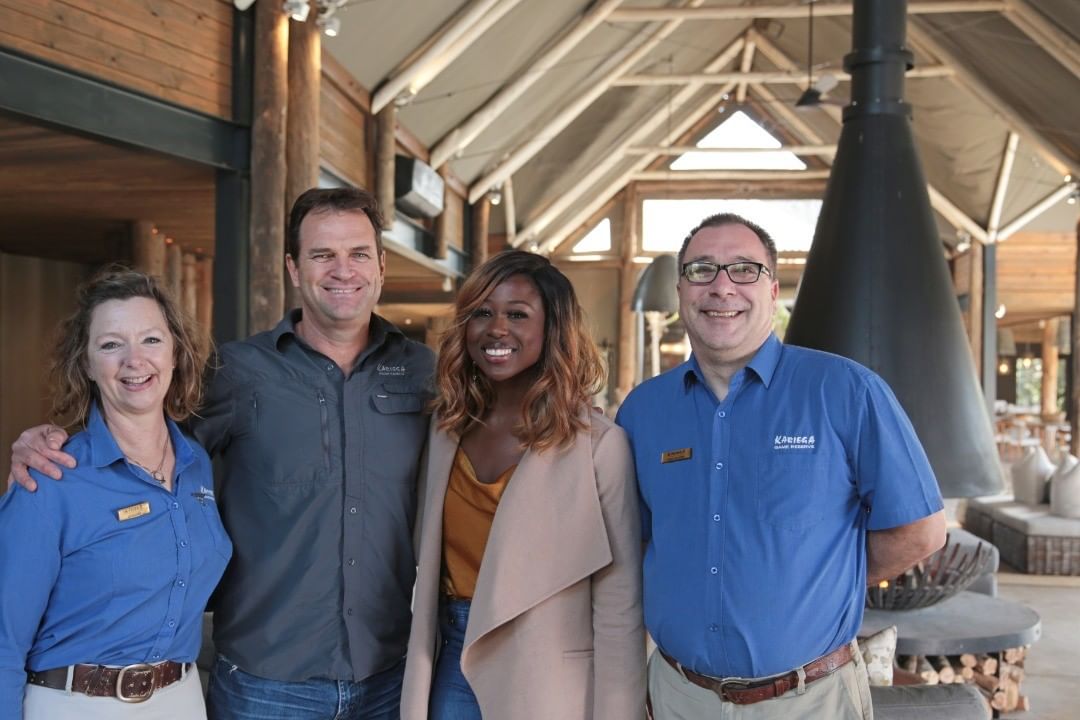
The above image is of Jo (far left), Kariega director Mark Rushmere, On Safari presenter Sika Osei and Phil Oliver at Settlers Drift lodge.
The Lion's Roar: Kariega Game Reserve Excerpt
"Kariega afforded us the wonderful luxury of indulging our love for the study of animal behaviour. Because the reserve had been running for many years and therefore many generations of animals had been born and raised there, the presence of our game drive vehicles was of no more significance to them as a bush or a tree. We were neither a threat nor food and, therefore, they simply ignored us so enabling them to continue their natural behaviour in front of us.
No more was that comfort and ease demonstrated than when our pride of four adult lions had their first litter of cubs. Apart from the initial protective period of around 2 months when the mother kept her cubs hidden, we were able to watch the little ones playing, slowly learning their stalking and pouncing skills on each other, and observe the pecking order that emerged once they were old enough to join the adults on the kills.
Our lions came from the Kalahari blood line which produces the striking black manes on the males. Unlike their blonde maned cousins from the lush open savannah regions, the pecking order on a kill for Kalahari lions is males first, then cubs, then the females. Savannah lions adopt the more well known practice of males first, then females and then the cubs. For any species, the survival of the next generation is paramount for the survival of the entire species. As the Kalahari Desert is a harsh environment with incredible hardships during the dry months, the availability of food to hunt can be sparse at best. Scientists studying the lions in the Kalahari have witnessed that during these periods, prides have been reduced to hunting such small things as hares in order to stave off starvation until the annual rains brings a return of the more favoured antelope and zebra. With such slim pickings, it is no wonder that the males encourage the cubs to feed on what little food is available to them in order to ensure their survival.
Kariega Game Reserve is certainly a far cry from the harsh realities of the desert, but this survival instinct is ingrained in these lions and we watched many times the two males snarling at the lionesses to move aside as they pushed the littles ones onto the carcass.
One particular lion kill sighting was quite magical. The lionesses had brought down a mature warthog, and once the males had snacked on it and move aside, the cubs eagerly barged in to take their turn. A warthog is not a particularly large animal to accommodate four greedy cubs equally and a little pushing and shoving ensued until they found their places. After a few minutes, their mother approached the first cub and taking it’s back leg in her mouth, tried to pull it away from the kill. Again and again, she tugged at her son until he was off the kill and each time she released him, he would toddle back to his former place. Once more she took his back leg and tugged him away from his food. In a flash, he shot around simultaneously snarling and cuffing his mother in the face with his front paw. She immediately released him and then moved onto the next cub. She repeated the same exercise with each little one in turn, only ceasing when the cub reacted aggressively to her.
At first, I was perplexed at her actions until I realised that I had just witnessed something so precious. A mother training her little ones into the reality of competition on a kill. No matter that I am your mother, you stay on that kill and you feed! An invaluable lesson for survival in their lives to come.
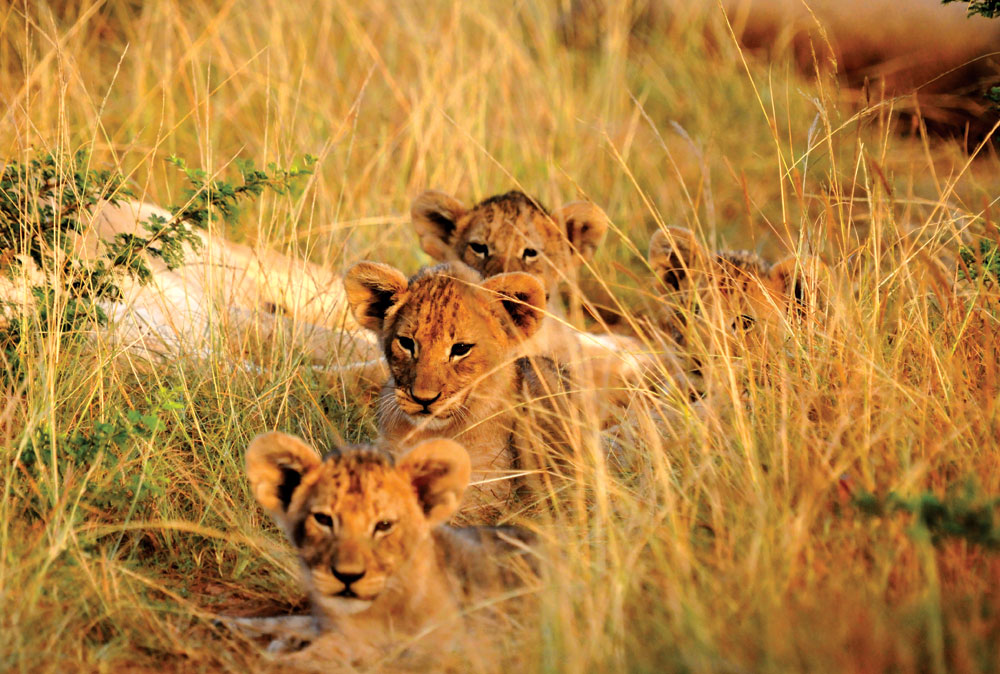
Later in the cubs’ development, when they were around 9 months old, I was lucky to witness another training session. I had found the lions on one of the open plains areas early one morning and immediately sensed that the lionesses were in a hunting mood. I positioned my vehicle atop a low rise on the plains so that we had an uninterrupted view of the herd of zebra that the lions were concentrating on.
My guests were enthralled with the mixed emotions of watching the hunt unfold before them. The strategic moves of the two sisters moving wide each side of the herd, one remaining unseen, one remaining totally visible to the zebras. The zebras fixated on the one visible lioness who then drove them unsuspectingly into the clutches of her unseen sister.
Bam! There in front of us a small dust cloud erupted as she leapt up and dug her long claws into the neck of a zebra and hung on, her weight pulling the animal down alongside her, kicking furiously with the inevitable panic. Her sister padded over to her but strangely, neither lioness went in for the coup de gras to finish the zebra off. Instead, the mother lioness merely held down the zebra by it’s neck whilst softly calling for her cubs to come forward. Until then, they had been eagerly waiting in the wings. As the two male lions were away from the pride patrolling their territorial boundaries, there was no need to step aside for them, and the cubs excitedly pounced onto the still very much alive zebra.
Lying on it’s side, every few minutes the zebra would kick furiously and the lioness would reinforce her hold on it’s neck with her paws. The cubs, not accustomed to coming upon a live animal and clearly not familiar with the dangers of a zebra’s kick, eagerly made their way to the zebra’s belly and rear end and started licking and smelling the animal. We could see that the lionesses, especially their mother, were suggesting to them that they needed to move around to the neck area but their soft calls went unheeded. Again, the zebra lashed out in defiance and managed to kick two of the cubs in their heads, sending their little bodies tumbling a few feet away.
Finally, on realising that the things at the end of a zebra’s legs can really hurt, the indignant cubs ventured around to where their mother was positioned, safely away from those nasty sharp hooves. With the cubs in position, she released her grip on the zebra’s neck in the hope that they would realise the lesson and take hold themselves to kill the zebra. However, they were having too much fun licking the stripes which gave the zebra a brief glimmer of hope for escape. As it tried to rise to it’s feet, both lionesses pushed it back down to the ground where it remained quiet, seemingly now resigned to it’s fate.
It became clear to the lionesses that the cubs were not interested in learning that morning and had to dispatch the zebra themselves before they could all start to tuck in.
As a conscientious mother, however, she repeated this lesson time and again until her cubs learnt how to suffocate their prey and later proved to be successful hunters in their own right. The one thing they did learn that morning, however, was the power of a zebra’s kick, sometimes a fatal kick ...
One of the most hoped for sightings for our guests is the prospect of witnessing a lion kill. The guests who were with me that morning not only had the great fortune of following a successful hunt, but also the more rare experience of observing a lioness training her cubs in how to make that kill. They watched her transform from keen, ruthless huntress into nurturing mother in a matter of moments.
Between us, Phil and I have been lucky enough to observe many different parents training their offspring, and not only limited to the mothers. We have seen huge six tonne elephant bulls kneel down to be on the same head level as their young sons to show them how to use their tusks in fighting. Phil has seen one bull lie down flat to demonstrate submission whilst his son planted his front feet upon his father’s shoulders in a show of newly learnt dominance.
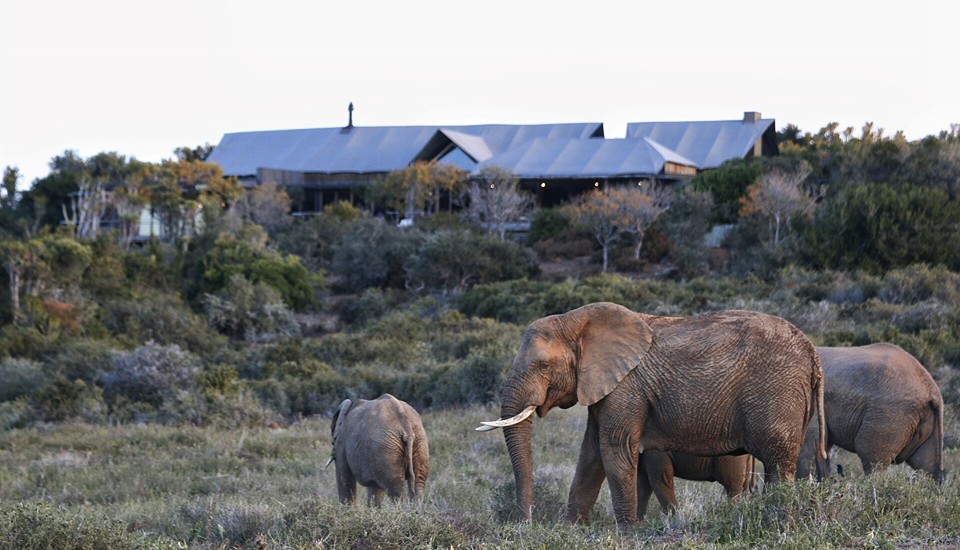
Together one morning, we had the joy of seeing a dominant bull white rhino approach his three year old son and, signaling to the mother that she need not be alarmed, proceeded to play-fight with him. Slowly, he pushed his son backwards whilst gently tapping his long main horn into the soft skin of his son’s throat, and into his son’s armpits. Then he would back off with his head held low to simulate submission, allowing his son to come forward, head high, tapping his tiny horn on his father’s forehead. I was struck by how gentle the bull was, having seen him endure territorial battles in the past. All of his moves and stabbing positions were the same, but in the real fights the immense power and strength of his two tonne body fully comes to bear, leaving the observer full of awe.
Each summer, we look forward to the delightful sight of blue wildebeest mothers taking their newborns for regular jogs around the plains to strengthen their legs.
A few times, we have driven through the plains in time to witness a mother zebra nipping at her son’s fetlocks, groin and neck to prepare him for the aggressive and bloody battles he will face as a stallion. As he turned to retaliate, she showed him the defensive moves of protecting the fetlocks by crouching or bucking to throw off his future opponent.
No matter how many wonderful sightings I have been part of, the privilege of witnessing the intimate relationship of a parent teaching their young into the ways of the wild, whilst fully aware of our presence yet unperturbed by it, is simply priceless."
Download and Read The Lion's Roar Book
If you enjoyed reading some of Jo's story you can download the book on the various platforms listed below. Click on the links to find out more:
The book is also available in paperback on Amazon UK.
We are hugely fortunate to have such a wonderfully talented writer and a brave, passionate and caring person as one of our Kariega team. We are very proud of Jo for writing and publishing her story and we think it is an inspiring and interesting read. Please leave any comments for Jo below or via our Kariega social media channels - Facebook, Instagram and Twitter.
Image of elephants in front of Settlers Drift lodge thanks to Kariega guide Wayne.
